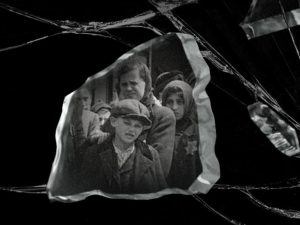More than one million people perished in the Auschwitz Complex; many of those victims who survived gave oral history testimonies. In these interviews, survivors recall life in the camp and contribute to the collective memory of Nazi persecutions. The goal of VOICES is to investigate the collective memory of Auschwitz survivors as transmitted in a multilingual corpus of 8000 interviews (approximately 20.000 consecutive hours). VOICES works with previous scholarship’s assumption that belated oral history testimonies are expressions of the collective memory. Specifically, VOICES aims to compare the collective memory of female and male survivors and test the hypothesis that there are systematic gender differences. Methodologically, VOICES applies a multimodal approach to collective memory in oral history testimonies, which is its main novelty. First, it investigates the physical and emotional layer of interviews (voice, body gesture, eye movement, silence, breaks, crying, etc); by drawing on behavioral signal processing, it detects moments that are emotionally turbulent for the survivors. Second, it identifies the underlying concentration camp episodes such as forced separation. Third, it compares those concentration camp episodes that trigger emotional turbulence for women and men remembering life in Auschwitz. According to the core hypothesis of VOICES, different concentration camp episodes must trigger emotional turbulence for women and men recalling life in the camp.
To connect memories recalled by women and men with the physical and emotional response that those memories trigger, VOICES relies on analysis of parallel sequences. In the interpretation of the emotionally turbulent memories of victims, VOICES also relies on the close listening of interviews by single survivors and on the contextual / historical study of the Auschwitz Complex. Furthermore, members of the VOICES consortium study variations in the multimodal and gendered collective memory across language, groups, and time. All this gives rise to a nuanced and gendered study of the collective memory that the 8000 Auschwitz survivors left in their belated testimonies.
VOICES is a multidisciplinary consortium of four partners; it brings together engineers, computer scientists, statisticians, digital humanists, psychologists, and historians. Its scientific outputs (2 monographs, 9 papers, 2 workshops, reusable code) will shed fresh light on the relationship between trauma, gender, and multimodal collective memory. The consortium of VOICES will contribute to and impact a large array of fields: computer science, history, digital humanities, digital history, and genocide studies. VOICES will also disseminate its findings towards the general public by developing an Auschwitz digital memorial; this memorial (an online exhibition) will present those concentration camp experiences that remained emotionally turbulent in the memory of victims. In summary, VOICES realizes a multimodal and gendered exploration of the collective memory that thousands of Auschwitz survivors left.

